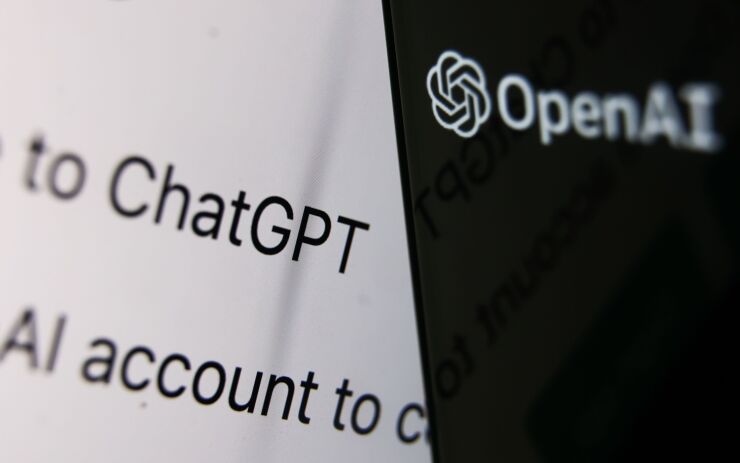The rapid growth of generative artificial intelligence chatbots like ChatGPT and Bard has prompted accountants and tax professionals to question how these technologies can be used without threatening their livelihoods or the confidentiality of client data.
"I think there are going to be lots and lots of use cases," said Martin Fiore, EY's Americas deputy vice chair of tax and author of the book Humanity Reimagined: Where We Go From Here. "Some are going to succeed and some are going to fail."
He likened the use of generative AI technology to the increasing use of robotic process automation, where pilot tests were done before RPA technology was gradually adopted at many firms and eventually transformed the way business was done. "AI is going to be the exact opposite," said Fiore. "It's going to change how we do business in a much shorter period of time."
Generative AI technology may have a more profound impact on the business world than other recent tech developments. "Today, we're all talking about ChatGPT. It's the shiny new toy," said Russ Porter, CFO and senior vice president of strategy, technology and analytics at the Institute of Management Accountants. "A couple of years ago, we were talking about cryptocurrency and how cryptocurrency was going to wipe out every currency on the planet. Clearly that hasn't happened. I don't think it's going to happen with ChatGPT and AI either."

As businesses use generative AI more, they will see how reliable it is for their work, he noted. He cited the recent
The problem of so-called hallucinations from AI is one that the accounting profession will need to grapple with as well if it begins to rely on tools like ChatGPT.
Researchers at Accounting Today and in academia have been testing ChatGPT's ability to pass university accounting exams and the CPA exam, which the latest generation of ChatGPT, Version 4.0, or GPT-4, managed to pass after failing with the earlier Version 3.5 (
Accounting professors are finding their students are using the tools for their courses.
"Over half of my students, about 52 to 53% in my last survey, are using ChatGPT," said Scott Dell, an accounting professor at Francis Marion University in Florence, South Carolina, who spoke at a session during the Institute of Management Accountants conference this week in Minneapolis.
He noted that on his own accounting class tests, ChatGPT scored about 54% on the questions. The program is not mathematically oriented like a spreadsheet, and relies more on words than on numbers for its information. However, he acknowledged that the program has been improving, as its scores on the CPA exam went from around 50% using Version 3.5 to above 80% with Version 4.0.
Like accounting students, accountants will need to learn how to leverage the new generative AI tools.
"I personally am excited about the future," said Steve McNally, chair-emeritus of the IMA's global board of directors for the 2022-2023 fiscal year. "I think it really helps us take on a new, higher-level business partnership, and being a strategic advisor."
AI tools will help automate the process, but there will still need to be a human role for the accountants. "Indeed, a lot will be automated, a lot more than we currently see," said Gwen van Berne, chair of the IMA's global board of directors for the 2022-2023 fiscal year. "The available data in itself is growing and growing. If you automate 90% of it, it's still a lot of work. Making sense of it all, being selective with data, assuring the authenticity of the data, combining data, and asking the right questions are critical skills with ChatGPT. The capability of financial professionals and controllers to really ask these questions will be critical for their organizations, using facts and unbiased information. That's going to be a good role for us. There's a huge need."
Accounting firms like EY will be looking to hire employees with skills in ChatGPT and other areas of technology. "The type of individuals we hire will be much broader than just the typical business student," said Fiore. "Engineering, computer science, the ideal of the future in my mind will be an individual that has more than one competency. That will be key for success going forward. The current workforce is going to have to be retooled at a much faster pace."
"The future of accounting and finance professionals is bright," said McNally. "You need to ask the right questions. That's who we are, whether you're on the compliance side or the management accounting and finance side. That's in our nature, to be inquisitive, to ask the questions and ask the follow-up questions. As there's more and more data, information and insights, how do you make heads and tails of it? That's what we're good at, in our position of seeing all the aspects of the operation, almost like an air traffic controller view. More so than any of our cross-functional partners, we are in that unique position where we can see the big picture, then ask the right questions, and ultimately make the right decisions at that moment in time."




